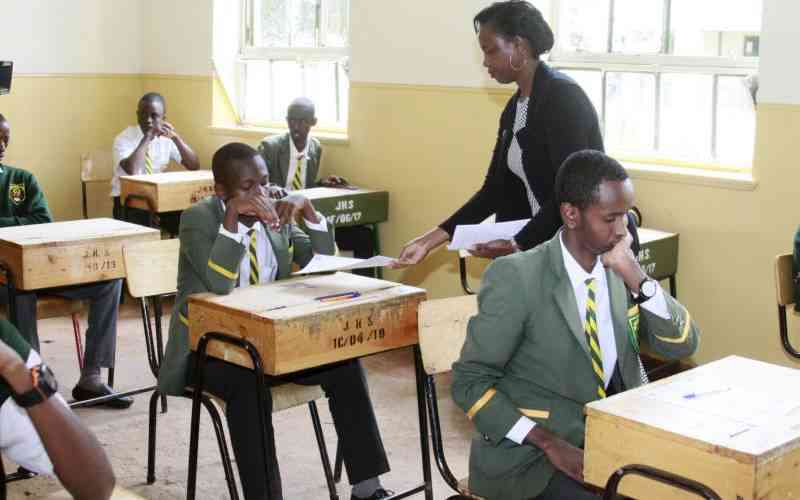Jamhuri High School students receive their exam papers during their KCSE Examination. [Boniface Okendo,Standard]
×
The Standard e-Paper
Kenya’s Boldest Voice

Jamhuri High School students receive their exam papers during their KCSE Examination. [Boniface Okendo,Standard]
More than 500,000 students who sat their KCPE exam between 2017 and 2019 did not complete their secondary education, coming in the wake of the 100 per cent transition policy from primary school.